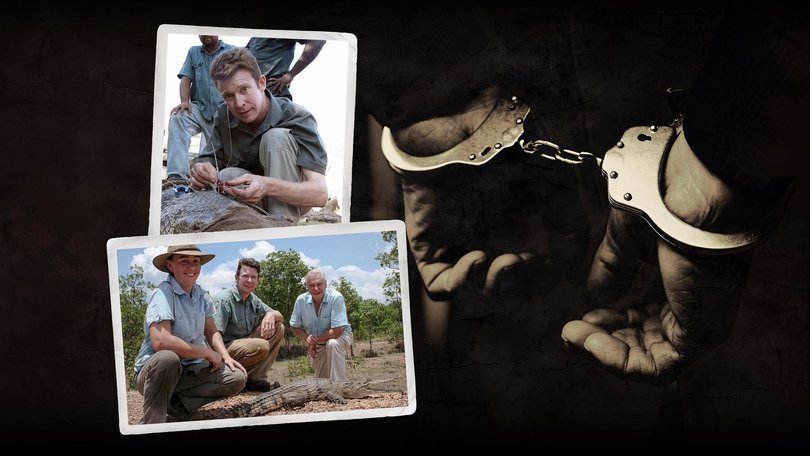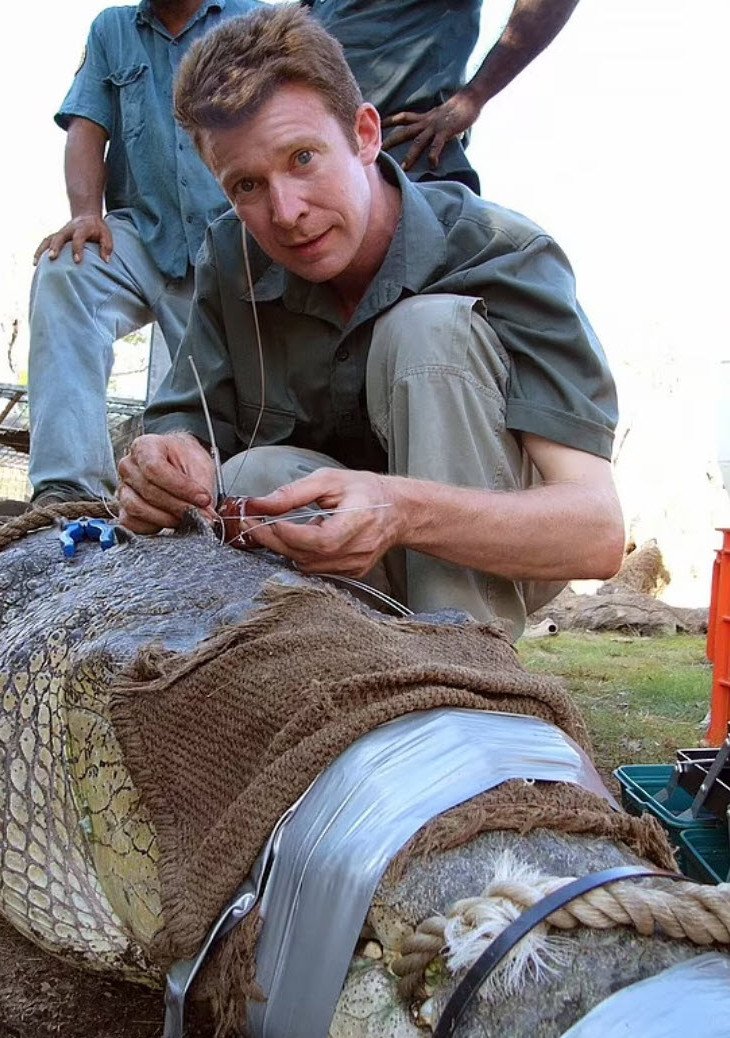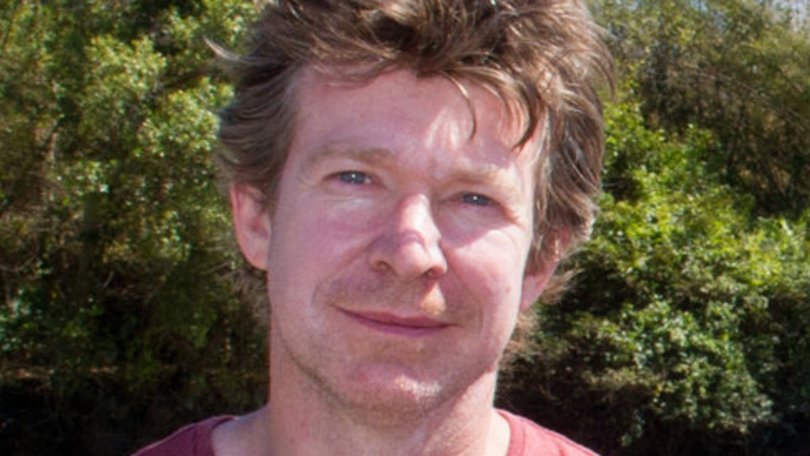Infamous Criminals Australia: Zoologist Adam Britton’s dog torture, animal cruelty ‘worst’ bestiality crimes
A celebrated zoologist who raped, tortured and killed dozens of dogs is in a ‘category of his own’ according to new national research into bestiality prosecutions.

WARNING: This story contains graphic details of animal cruelty and references child abuse.
The “evil” shocking depravity of a celebrated zoologist — who raped, tortured and killed dozens of dogs — put him in a “category of his own” during a new study of bestiality cases in Australia.
Kellie Toole from the University of Adelaide recently examined Adam Britton’s “incomprehensible” crimes against animals as part of her research into bestiality prosecutions throughout our nation’s history.
Sign up to The Nightly's newsletters.
Get the first look at the digital newspaper, curated daily stories and breaking headlines delivered to your inbox.
By continuing you agree to our Terms and Privacy Policy.Dr Toole said that Britton’s offending was “so egregious” and “like nothing else” she had seen in her earlier career as a criminal defence lawyer or in academia.
“By a long shot. There was nothing else, even in the ballpark, of his offences,” she said.
“Britton is a massive outlier in all of the 32 cases I looked at in terms of the cruelty.
“That extreme form of sadism just wasn’t present in almost any of the other cases.
“To (inflict) that vicious, fatal cruelty, he’s really in a category of his own.”
The Nightly’s new series is taking a fresh look inside the crimes and minds of Australia’s most recent infamous criminals.
It will examine the monsters who have been jailed in the last decade for offending so heinous it horrified the nation and made headlines around the world.
Britton, who had worked on BBC and National Geographic productions, is among this new breed of notorious inmates.

The famed animal expert with a global reputation had even hosted Sir David Attenborough, who filmed part of his Life in Cold Blood docuseries, at Britton’s Top End property.
It has been more than three years since Britton’s double life began to unravel after an extreme animal abuse video he had produced and shared online was anonymously sent to authorities in March 2022.
The Northern Territory Police Force and the Australian Federal Police’s Joint Anti-Child Exploitation Team quickly identified Britton as the perpetrator and swooped on him at home, in a semi-rural area, south of Darwin.
UK-born Britton — previously a highly regarded international crocodile expert — was arrested and last year and jailed after pleading guilty to 63 offences including sickening bestiality, animal cruelty, killing dogs and possessing child exploitation material.
Before Britton’s incomprehensible crimes were uncovered, Dr Toole had begun tracking cases that had been before the courts.
The Adelaide Law School senior lecturer said bestiality offending in Australia was severely underreported with only 32 cases prosecuted since white settlement.
When Britton’s case emerged, towards the end of her research, she was horrified.
“The extent and cruelty of it was really like nothing that I’d seen in this area,” she said.
“He kind of took it to such an extreme with the weapons and everything so the power abuse there is just beyond comprehension.
“There’s various levels of detail (in older cases) but nothing even close to this.”
Forensic psychologist Lars Madsen said Britton’s abuse would have made him feel “powerful”.
“It’s seeing others, in this case animals, suffering and having control over them, and being able to amplify it, and then slow it down and amplify it again,” he said.
“He would have been (thinking), ‘how can I make it more painful, more scary, more stimulating?’
Dr Madsen, director of Forensic + Clinical Psychology Centre in Brisbane, said Britton — who is “Machiavellian, callous, exploitative and lacking empathy” — fits the profile of a psychopath.
“I imagine he would score quite highly on these (psychopathic) traits, because to do this and then also keep it hidden, you have to live a double life,” he said.
“The psychopathic element of it really amplifies the criminal risk of it and also makes him extremely challenging to treat because these things just don’t go away.
“You can’t really treat paraphilias. You can manage it but you can’t cure him of it.”
Britton’s offending would have become an “all-consuming compulsion” for him.
“His whole life and career would have been structured around this activity,” Dr Madsen said.
“A fair portion of his day and his week would have been consumed by this stuff and also keeping people away.”
Britton, originally from northern England, holds a doctoral degree in zoology.
He moved to Australia decades ago after securing a position with a crocodile research farm in Darwin, where he worked as a research officer for almost 10 years.
Before his arrest, Britton was a respected senior research associate at Charles Darwin University and ran crocodile research consultancy Big Gecko with his former wife Erin, who frequently travelled for work and was completely unaware her husband’s offending.
Britton fantasised exclusively about animals and had no sexual interest in people despite being married for more than two decades.
Court documents reveal that from about 2014, the 54-year-old began engaging in sexual activities with the couple’s two Swiss shepherd dogs.
Between November 2020 and April 2022, Britton sourced 42 dogs of varying breeds and ages which he later “tortured and sexually exploited for his own sadistic sexual pleasure”. He killed at least 39 of them.
Britton used Telegram to chat with other perverts about their mutual sexual interest in molesting, torturing and killing animals. He also shared recordings of his crimes, which is what brought him unstuck.
Dr Toole’s research, recently published in the Melbourne University Law Review, found Britton’s case was the only one in Australia where the defendant’s conduct was classified as “clinical deviance” and was accompanied by the intention to cause animal suffering.
It was also the only case that involved an offender who worked in a profession that involved caring for animals.

The hardened detective who led the investigation into Britton’s crimes, Detective Sergeant Mark Cronin, last year told The Nightly that Britton’s indescribable animal cruelty constituted the “most horrific case” the NT had ever seen.
Dr Toole believes Britton’s crimes represent the worst case of bestiality in Australia’s history.
NT Supreme Court Chief Justice Michael Grant was loath to ventilate details of Britton’s “grotesque depravity and cruelty” in court due to its traumatising nature but said Britton’s conduct fell within the worst category of offending of this type.
The experienced judge said he was “entirely unable to conceive of anything worse” than Britton’s crimes, which were “entirely outside any ordinary human conception and comprehension”.
“Your decision … to begin and continue performing these unspeakable acts was the result of evil motivation and intention, rather than impaired mental functioning,” he said.
Justice Grant found Britton posed a high risk of reoffending upon release from prison.
A psychiatrist report indicated that, given the exclusivity of Britton’s preference and the severity of his condition, it will remain an ongoing chronic and longstanding paraphilia even with sex offender treatment.
Britton was sentenced to 10 years and 5 months — backdated from the date of his arrest — in jail with a six-year non-parole period.
Justice Grant also ordered that Britton must never buy, acquire or own any mammal — or have any mammal in or on his premises — ever again.
Dr Toole’s analysis reveals that, on average, one bestiality prosecution occurs in Australia each year with maximum penalties ranging — depending on jurisdiction — between five and 14 years’ imprisonment.
Almost 12,000 people have signed an online petition calling for increased penalties for extreme aggravated cruelty under the Northern Territory’s Animal Protection Act 2018.
“Currently the maximum sentence for aggravated cruelty to an animal is five years,” the organiser wrote.
“This clearly is not enough for such an extreme barbaric psychopath serial killer as Britton. He will torture and kill again.”
To report animal cruelty, contact the RSPCA.

